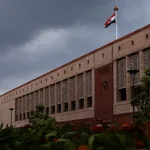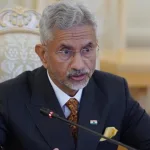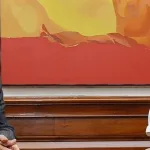New Delhi, Oct 10: Union Minister of State (Independent Charge) for Science & Technology, MoS PMO, Personnel, Public Grievances, Pensions, Atomic Energy, and Space, Dr Jitendra Singh on Tuesday announced that the launch of the ‘Gaganyaan’ Test Vehicle Spaceflight – ‘Gaganyaan’ Test Vehicle Development Flight (TV-D1) is scheduled for the 21st of this month.
He made this announcement while addressing a gathering at a felicitation programme honouring ISRO scientists associated with the Chandrayaan Mission, held in New Delhi.
Dr Singh said ISRO will also test the efficacy of the Crew Escape System which is the crucial part of the “Gaganyaan” mission, resulting in unmanned and manned missions to outer space by 2024. The test is to be conducted at Satish Dhawan Space Centre in Sriharikota. Crew Module will carry the astronauts during the Gaganyaan mission to outer space.
The test involves launching a crew module to outer space, bringing it back to Earth and recovering it after touchdown in the Bay of Bengal. Indian Navy personnel have already started mock operations to recover the module.
The success of this test will set the stage for the first unmanned “Gaganyaan” mission and ultimately manned mission to outer space in low Earth orbit, informed the Minister. Before the ultimate manned “Gaganyaan” mission, there will be a test flight next year, which will carry “Vyommitra”, the female robot astronaut, he said.
Gaganyaan project envisages a demonstration of human spaceflight capability by launching a human crew to an orbit of 400 km and bringing them back safely to earth, by landing in Indian sea waters. The prerequisites for the “Gaganyaan” mission include the development of many critical technologies including a human-rated launch vehicle for carrying the crew safely to space, a Life Support System to provide an earth-like environment to the crew in space, crew emergency escape provision and evolving crew management aspects for training, recovery and rehabilitation of crew.
Dr Jitendra said India is among the top five nations in the field of space exploration. He gave full credit to Prime Minister Narendra Modi for enabling India’s space scientists to vindicate the dream of their founding father Vikram Sarabhai by “unlocking” India’s Space sector and providing an enabling milieu in which India’s huge potential and talent could find an outlet and prove itself to the rest of the world.
“After the opening up of the Space sector by Prime Minister Narendra Modi in June 2020, the number of Space Startups sky-rocketed from merely 4 to 150 Startups,” he said, adding that India’s space missions are designed to be cost-effective.
Referring to applications of Space Technology to different sectors like Railways, Highways, Agriculture, Water Mapping, Smart Cities, Telemedicine and Robotic Surgery, which brought ‘Ease of Living’ for the common man, the union minister said space tech has touched virtually every household in India.
“During PM Modi’s tenure of nine years, India’s disaster capabilities have become world-class and we are providing Disaster Forecasts for neighbouring countries as well,” he said.





